

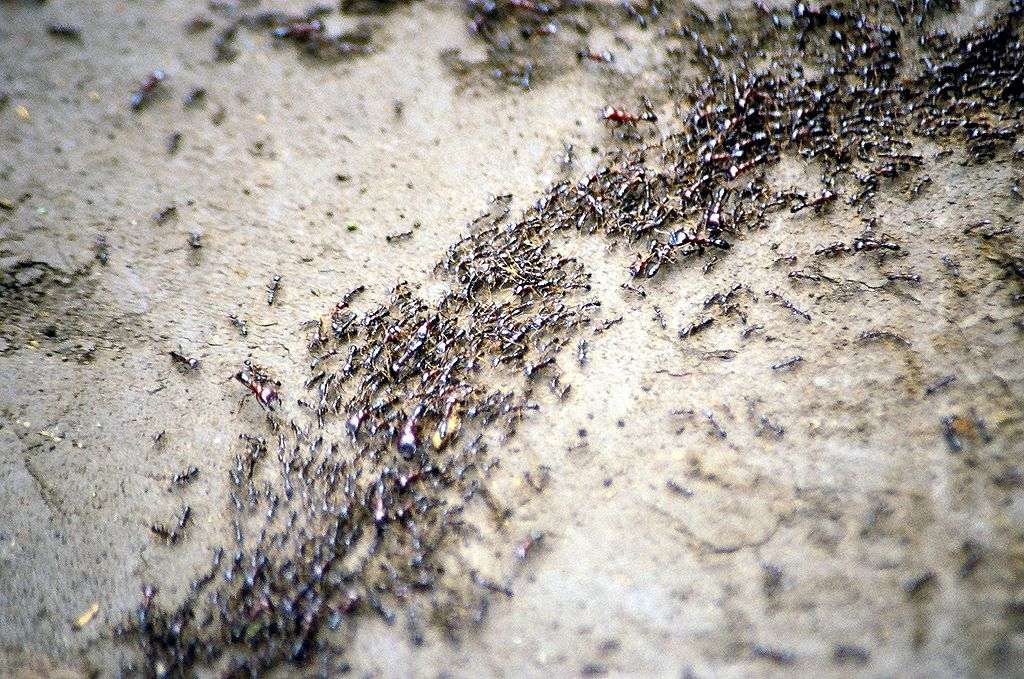
If you have ants in or around your home, you might be on a quest to find out more information about them and their daily habits. Perhaps you’re even researching some questions online to try to find answers. You might just want to know what you’re up against!
We know that homeowners in Alexandria, Arlington, and Springfield, VA have a lot of questions because they often ask pest control companies like us, too. In order to help answer some of them, all in one place, we’ve rounded up a list of some of the most surprising ant facts based on these common questions.
When people have an ant problem, one of the first questions they ask is, do ants bite? The truth is all ants can bite, it’s just that many species found in Northern VA probably won’t (as it’s not part of their defense mechanism).
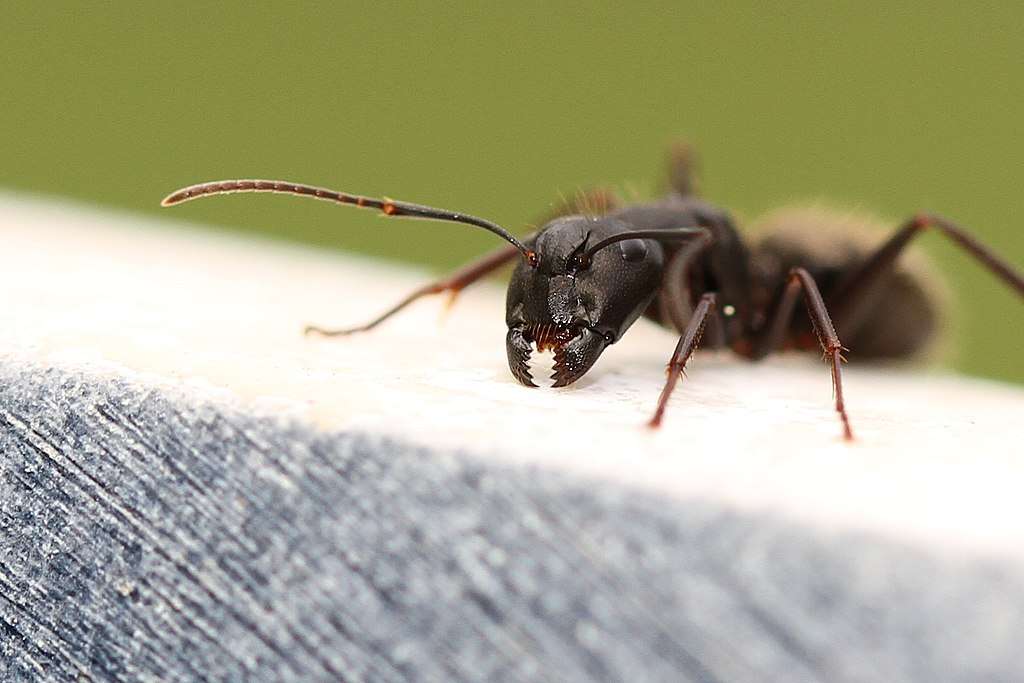
Species found other places such as field ants, crazy ants, and carpenter ants, are 3 that are most likely to bite. Of course, there are also ants that sting. A fire ant will both sting and bite if it’s threatened. This can cause serious allergic reactions for some people.
You might be wondering, do ants sleep? If you’ve ever observed ants at different times of the day, or even at night, they always seem to be active. But that’s because ants take incredibly short power naps and at staggered times—meaning there are always ants that are awake when others are taking their quick rest.
Unfortunately, this also means that they can invade your home at any time of day—or night.
A recent study of ants’ sleep cycle found that the average worker ant takes approximately 250 naps each day, with each one lasting just over a minute. That adds up to 4 hours and 48 minutes of sleep per day. The research also found that 80 percent of the ant workforce was awake and active at any one time.
A lot of people want to know do ants hibernate? That’s because they seem to disappear during the winter months. Ants are experts at “overwintering,” which means they wait out the winter season before getting back to work.
When temperatures drop, ants seek out warm places and huddle together in clusters to maintain body heat (and to protect the queen). While they generally seek out places like deep soil or under rocks, if they find a way into your home, they may choose to overwinter in your walls.
Ants also love areas under concrete slabs, which are often found in garages, additions, or even certain areas of the house that don’t have a basement beneath them.
Another common question is, do ants have wings? While almost all ant species can develop wings and fly, only reproductive ants will actually go through the transformation process (and only during breeding season).
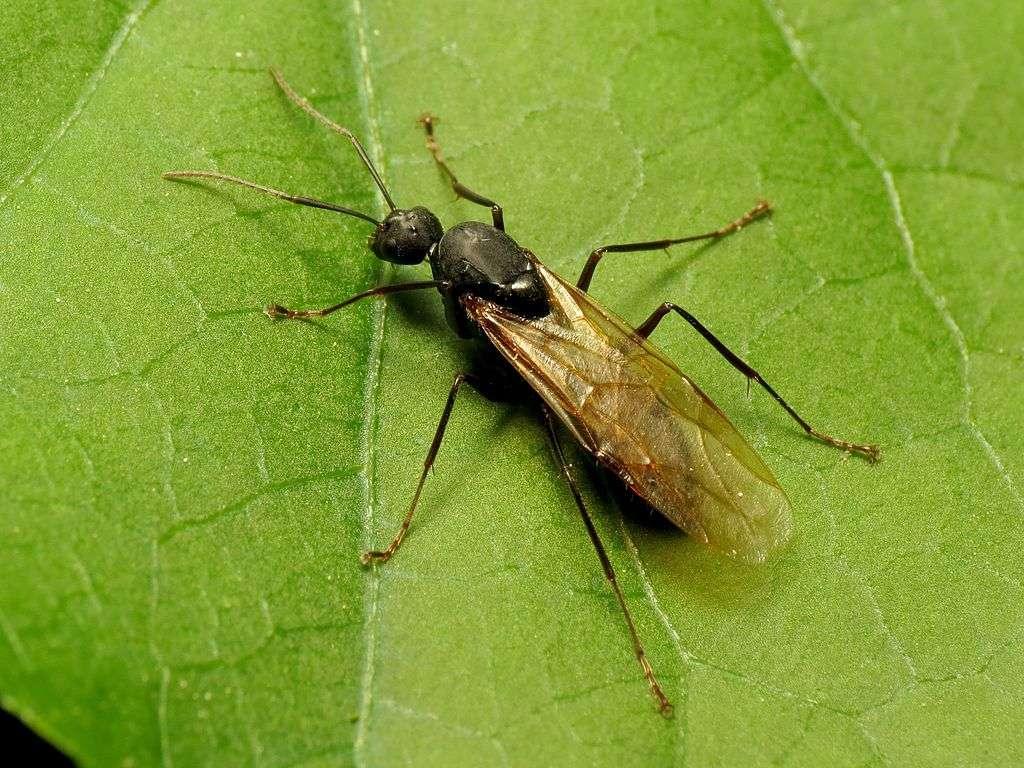
The foraging worker ants of any species that you are likely to see around your home will never have wings. That means if you do see winged ants in or around your home, they are likely on a quest to create a new colony!
This occurs in a process called “budding,” and it happens when a colony gets too big and a new one needs to be formed. There can actually be dozens of colonies around a single structure.
You might be wondering what do ants eat? Ants, like humans, have a diverse diet and can be classified as omnivores (meaning they will eat food of both plant or animal origin). In and around your house, ants are opportunistic feeders. They will eat anything that you leave out and crumbs may actually attract them to your kitchen, particularly when their food is scarce.
You might also want to know where do ants live? Broadly speaking, ants live all over the world. However, what you probably really want to know is where ants live in a house?
Ants generally find their way into a home with the purpose of finding food, shelter, and water. Many ant colonies may exist outside, but forager ants will make their way into the home in search of these necessities.
Inside of a home, ants may live behind baseboards, moldings, countertops, or even within the walls of homes in Alexandria, Arlington, or Springfield, VA.
If you’re wondering “How long do ants live?”, then you’ll want to know that ants’ lifespan will depend upon a variety of factors including the species, the food quality and availability, accessibility of shelter, and other factors.
While fire ants tend to only live around 5 weeks, Odorous House Ants can live as long as 2 to 3 years. These particular ants are the most troublesome and prevalent in Northern Virginia.
Though individual ants can live 2 to 3 years, that means colonies can last even longer and continue to grow in size. In fact, odorous house ant colonies can grow to tens of thousands and have multiple queen ants, meaning the colony could last for decades if not addressed.
If you’ve witnessed one or two ants quickly become a trail of many, you might be wondering how do ants communicate? You can be sure that when they’ve found a food source in your home, even the tiniest crumbs, they’re going to tell their friends.
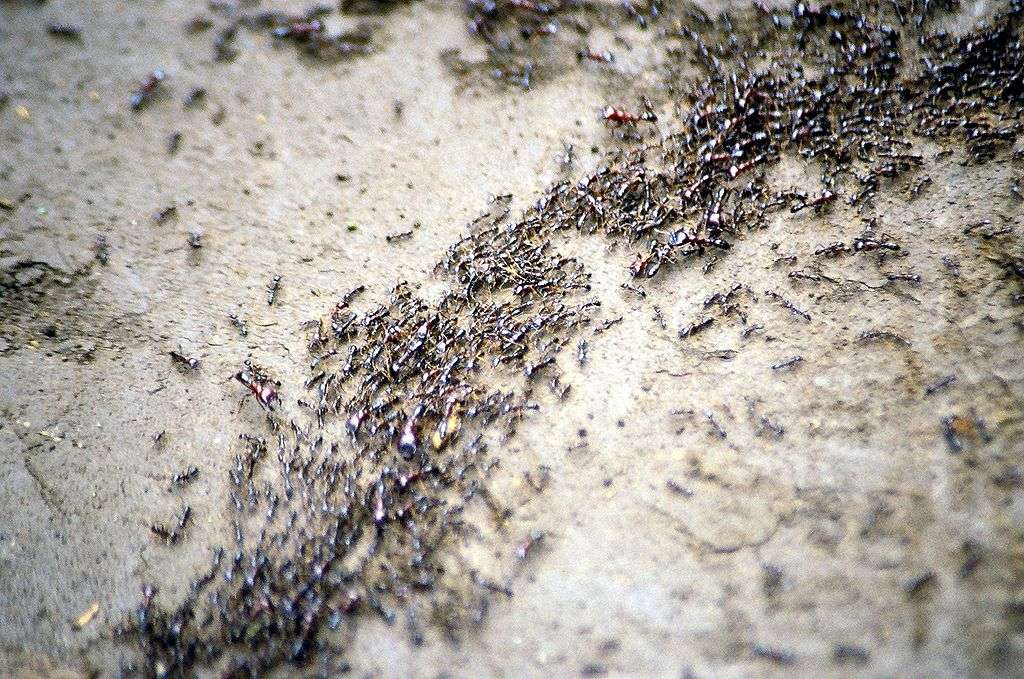
Soon that trail of ants is going out of the soil, up your home’s foundation, underneath the siding or smallest of all cracks, and leading to your kitchen counter.
This is done through a pheromone trail. All ants can produce pheromones (which are scent chemicals) and that will help lead other ants directly to them.
If you’re experiencing an ant problem in your home, you might be wondering, where do ants come from? Ants have been known to build their nests and form colonies near homes.
Colonies are found within cracks in the pavement, within lawns, and around the foundation of your home. Unfortunately, even the most efficient homes have cracks and spaces where ants can creep in. Nothing is airtight.
When ants begin foraging for food and water and seeking shelter, they then may make their way in. This could be by squeezing in through cracks around sliding glass doors, windows, or even garages.
If you have a significant infestation of ants already inside of your home, then you may need to call an exterminator. However, if you’re just finding a few ants in your home, then you can address the problem from the outside. After all, as we explained, ants make their way from the outside.
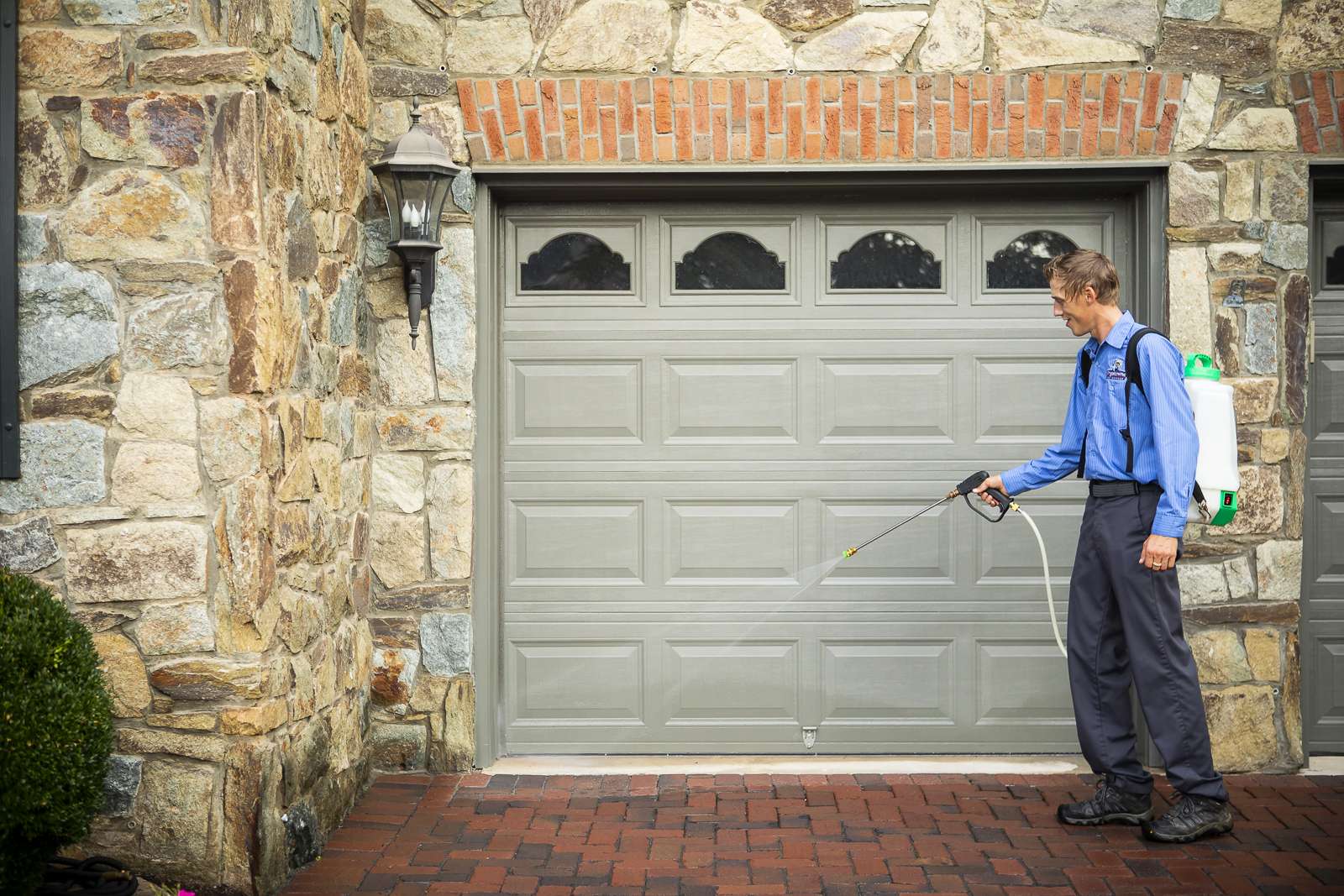
With Perimeter Pest Defense, you can create a shield around your home and prevent the majority of these unwanted pests from making their way into your home in the first place.
With this treatment approach, vulnerable areas will be treated (such as along the sides of drain pipes, which ants have been known to utilize to make their way in). Perimeter Pest Defense will also be applied two feet up and two feet out, around the perimeter of the home.
Of course, if you also have a problem in your lawn, then we can apply bait to those areas to address this concern. The worker ants will take the bait back to their colonies.
You deserve to be able to feel as though you aren’t under attack by pesky ants. Spotting ants in your home may mean that you have an ant problem outside and your best bet is to defend against potential invasions from the outside.
You can stop ants in their tracks.
Of course, if you’re already dealing with a significant interior invasion and you need to call in an exterminator, you might be looking for a solution in the future so that this doesn’t happen again. Perimeter Pest Defense will not only keep ants away but other creepy crawlies as well. It will provide you with the peace of mind that these pests won’t be creeping into your home.
Ready to protect your Alexandria, Arlington, or Springfield, VA home from ants and other pests? Get started today! Request a free quote and let us give you the royal treatment!
Image sources: carpenter ant, ant with wings, ant trail

Since its founding, Krisjan has led Kingstowne Lawn & Landscape with a straightforward philosophy: treat every customer like the “only” customer. His passionate pursuit of excellent customer service has led to 28 successful years and a thriving company with over 85 employees. Since 1997, Kingstowne has helped thousands of homeowners in the Alexandria, Arlington, and Springfield, VA area get what they want - a worry-free property they can be proud of.




If You're Looking For a Sign, This is It.
Seriously, that lawn isn't getting any better on it's own. Mrs. Jones just called the HOA on you